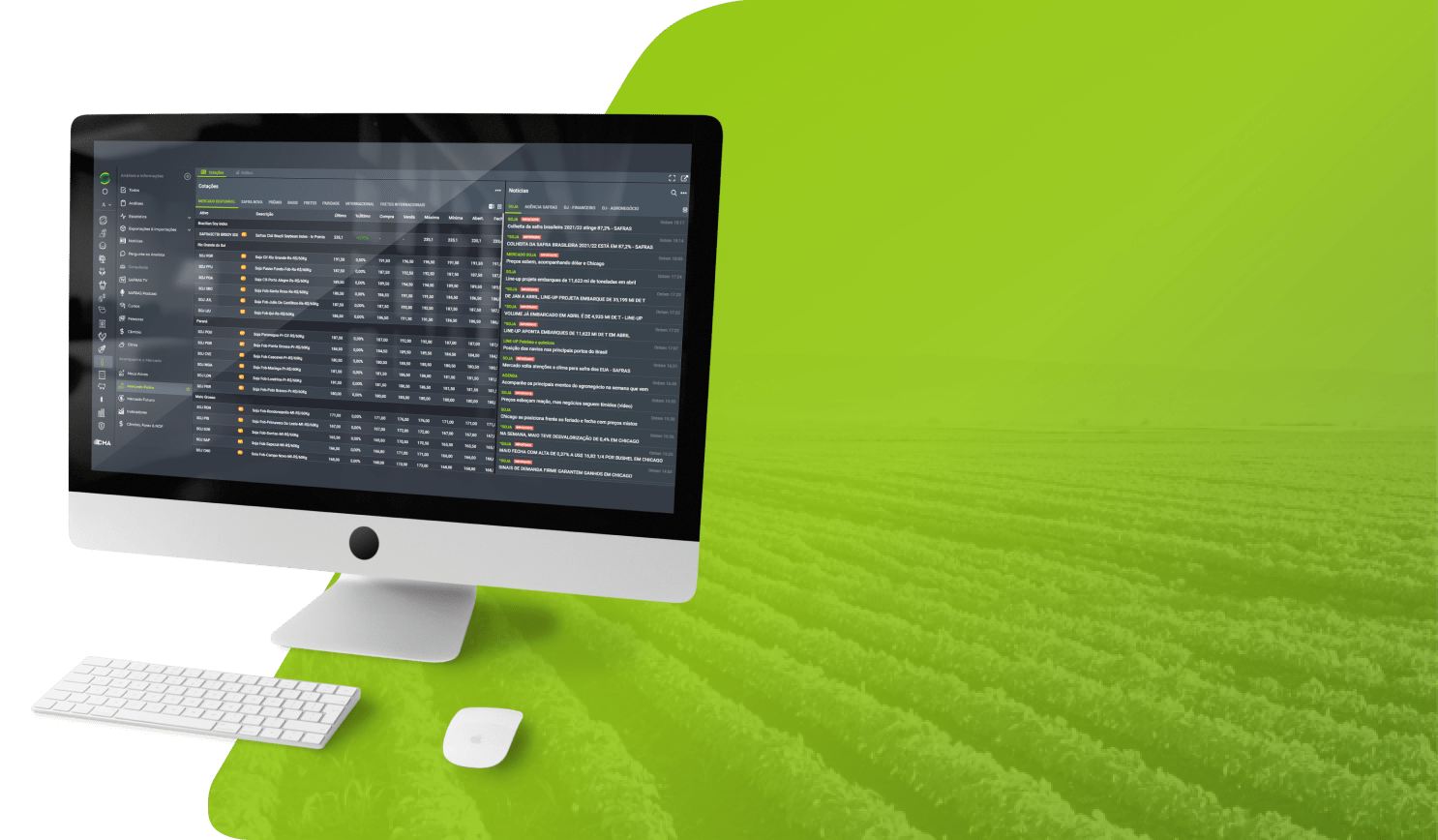Porto Alegre, December 21, 2021 – Last week saw an increase in soybean prices in the Brazilian market, following the recovery of future prices in Chicago and the firm dollar. But the business pace remained slow, with growers on the defensive, waiting for an even better scenario at the end of the year and prioritizing crops.
In Passo Fundo (RS), the 60-kilogram bag rose from BRL 171.00 to 174.00 last week. In Cascavel (PR), prices increased from BRL 164.00 to 169.00. In Rondonópolis (MT), prices went up from BRL 155.00 to 156.00, and at the Port of Paranaguá, from BRL 169.00 to 174.00.
]
The Brazilian Association of Vegetable Oil Industries (ABIOVE) made some changes to its estimates for the supply and demand of soymeal and soyoil in Brazil in 2021 and 2022.
For soyoil, the estimated exports for 2021 increased over the previous projection. For the domestic market, ABIOVE slightly increased the projected consumption of soyoil for food purposes, but at the same time sharply dropped the volume destined for the production of biodiesel. As a result, it estimates the domestic demand at 8.2 million tons, down 2% from the previous projection.
For 2022, ABIOVE estimates a new and more intense reduction in the domestic consumption of soyoil to less than 8.0 million tons, which confirms the sentiment of SAFRAS & Mercado due to the recent decision involving the B10. This volume is below the value registered in 2020 (8.5 million tons) and the one expected for 2021 (8.2 million tons). The retreat, once again, stems from the lower need for raw material for biodiesel production in the country, simultaneously with the stability of consumption for food purposes, resulting in the inevitable switch of a significant part of the national production to exports, now projected at 1.6 million tons.
The crush, projected at 48 million tons, is growing but at much lower rates than those expected for the other variables. Specifically, the ABIOVE’s projections for 2022 compared to 2021 point to an annual increase of 5% in grain production, 9% in exports, 5% in its stocks, and 3% in the crush. The possibility of reducing the crush estimate is not ruled out, given the carryover stocks, especially for meal, and depending on the evolution of the international market fundamentals.
ABIOVE projects record-breaking exports of meal, mainly influenced by the promising outlook for business with Southeast Asian countries. The estimated domestic consumption of soymeal reaches 18.1 million tons in 2022, higher than the volumes of 2019 and 2021, but still below those observed in 2020, of 18.9 million tons.
Imported volumes will be minimal, meeting residual needs and, therefore, contributing to the full capacity of the soybean production chain in Brazil to meet both domestic and export needs.
Copyright 2021 – SAFRAS Latam





